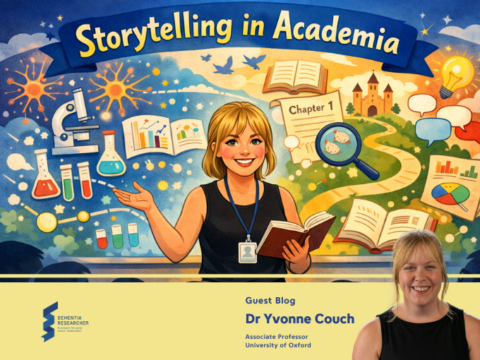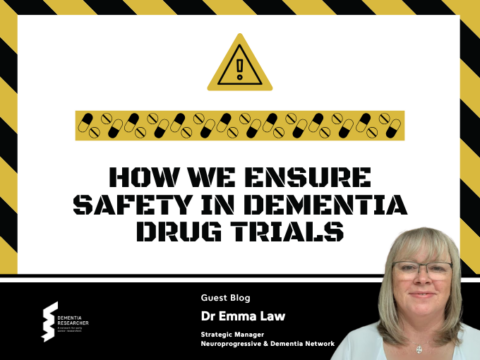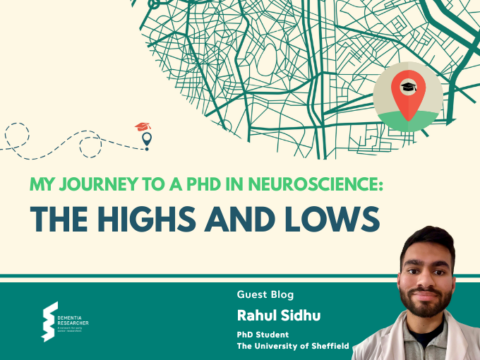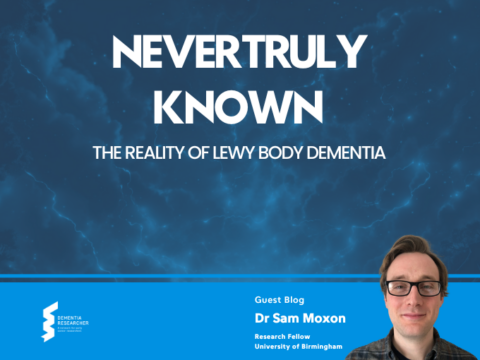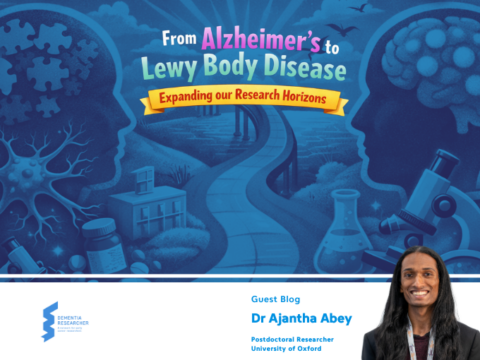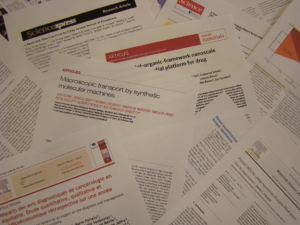 I’m currently doing my PhD in the lab where I also completed a Master’s thesis. A Master’s project is generally short and succinct so that a student, an inexperienced researcher, can do the project and write it up all within 6 months to hopefully less than a year. Sometimes the thesis has potential to turn into a publication without “too much” extra work and I was lucky enough for that to be the case in mine. In the academic world, publications are the currency of success, so getting one out of a Master’s thesis is a great deal. Being inexperienced though, different parts of this process have been frustrating, exciting, unexpected, empowering, and, most of all, enlightening.
I’m currently doing my PhD in the lab where I also completed a Master’s thesis. A Master’s project is generally short and succinct so that a student, an inexperienced researcher, can do the project and write it up all within 6 months to hopefully less than a year. Sometimes the thesis has potential to turn into a publication without “too much” extra work and I was lucky enough for that to be the case in mine. In the academic world, publications are the currency of success, so getting one out of a Master’s thesis is a great deal. Being inexperienced though, different parts of this process have been frustrating, exciting, unexpected, empowering, and, most of all, enlightening.
Here’s my disclaimer: I have come to believe that no amount of cautioning can really prepare a person for things they haven’t gone through before. Nevertheless, it provides an interesting perspective for others to rally to or tell in their own way. I think it also improves a person’s ability to be flexible and bounce back if they have some indication that certain things may happen in a new situation. A mantra that remains with me all the way from my primary school drama teacher is that Flexibility is a Sign of Greatness.
With all of that in mind, here are some things I learned while writing my first publication:
It takes time. Seriously.
This is why it was important to mention that I stayed in the same lab to continue a PhD. Even then I have had to grapple with having my head in two research projects—organizing and getting into a new project while spending most of my energy reading on and analyzing my previous project. Maybe it is good experience for supervisory work but at the time it was simply a challenge. I had to adjust my own expectations and be vocal about the need to write this publication up in a timely fashion so that I could focus on my PhD.
In being vocal, they looked at me like I was crazy when I said I wanted to do it in 6 months. To be fair though, I was told from the beginning that I could basically write up my thesis in a publication format and sell that. Ha! It was from January to October when we finally got it into pre-print.
The first frustration I had was a stream of ‘suggested’ additions. We really should have this analysis. If you want to aim for a higher impact factor, we can add that. It isn’t necessary but if it doesn’t take too much time, we should include this. I’m but a fresh PhD student, if established scientists tell me to do something with my research, I feel I should listen. I was fortunate to have a friend in the institute who could work out one key analyses that the supervisors wanted and he was happy to collaborate for a place on the author list.
Adding said analysis and doing statistics on it – and messing it up – and doing the analysis in a different way – and doing more statistics – and trying to interpret it – and seeing that there were more angles – and doubling the size of the analysis – and doing MORE statistics (new statistics that I had never seen before) – and completely misunderstanding those statistics – and trying in vain to interpret them – and redoing the second part of the analysis – and doing the correct statistics (more that I had never seen before) – and interpreting them – and getting my supervisor on board – and getting another supporting author who’s an expert-in-something-similar on board – and meeting and talking about all of it periodically throughout…
….
It took time, to say the least.
I put my foot down as a default towards the very beginning on doing more analyses along with the one above. I think it made me come across as defensive and aggravated to my supervisors but honestly, it was worth the time saved when I started doing it. This leads into my second big lesson:
You should be the expert. You should also act like the expert.
They don’t stall you intentionally. And they even feel a bit bad about asking you to go back to your desk to do more work, even though they are excited about the data to be produced. However, time and time again I was sent from a meeting to perform a test a different way or to run a new analysis to find that it was impossible/impractical/unnecessary. I’ve heard many times before that in a PhD, you are your own best advocate and I can’t stress enough in how many situations that actually applies.
If I had known better, I could have explained my case for more productive meetings. Everyone has their own busy schedule and sometimes you don’t know the next time you can get these 3 scientists in a room discussing your paper again. So it’s really important to make those meetings count. In my previous example with the added analysis, there really were a few times that I beat my head against walls before realizing that things had been miscommunicated in meetings. I said that I felt I should listen to established scientists in my inexperienced state, and I wasn’t wrong to do so.
The key thing here is to be as open-minded as possible while remaining diligently realistic; be willing to try things but quickly recognize when it becomes impractical; be really critical about what you’re being asked to do and why.
If you really start digging into your field, into your data, and into the argument presented by your findings, you become the expert of this publication. Act like it. Have fruitful discussions, press them for details and justifications. The only person you should really consider to have as much say as you is the last author.
At this point I have to say that I have a very supportive supervisor/last author and I have happily made compromises with him for the betterment of the publication. I consider the writing in the publication to be a true collaboration between us; especially at the end when we were on the same page about the data and arguments, it was fun working with him. I know that not everyone is so fortunate and I can’t speak for the experience of those fighting against real blockades in their research. Though in an appeal to all, I personally believe the following:
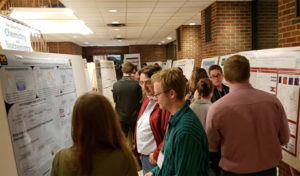 If you look for moral support, you will most likely find it.
If you look for moral support, you will most likely find it.
Science can be frustrating, even in the best of circumstances, and writing publications is integral to that beautiful, exasperating experience.
I had expected this to be a challenge, but as I said in my opening, I couldn’t have been fully prepared. For much of it, I was able to turn to other PhD candidates in my lab for empathy and to my supervisor for clarification and support. In this process and through my thesis I began to understand how devoted everyone was to the data and the science at different levels. They genuinely cared about what could be gained from this work. I mean, watch out because it can be easy to take that scientific excitement and blow a publication way out of any realistic scope! But it’s coming from a good place and you can have candid conversations about their motivations and where there can be compromise.
You just have to be the one to say my favorite line: “That’s outside the scope of this publication”. In my case, we eventually started laughing at how obstinate I was to added analyses and I was relieved to have that understood and accepted as a default. It meant that anything they wanted to add needed to be justified and they knew it.
Another note on moral support was actually to use Twitter. I was surprised at how hard it was for me to read feedback on my writing. I also cared very much about this research and the presentation of it. I literally had to read through the feedback in chunks because I would get upset and angry. Mind you, I was grateful to be getting all of the feedback and when I had time to process it, I believe I took everything into fair consideration. It improved the process and it improved the writing and the study overall. My own reaction was the most difficult part and so I reached out to the academic community on Twitter and received a lot of validation and moral support.
Whatever you’re going through, you probably aren’t alone. And everyone who’s written a publication had to start with their first one.
Final thoughts:
A huge drive for me is positive feedback—and there was plenty of it as I pushed early drafts onto people’s desks. Throughout all of this, there were scattered moments of triumph at getting sections written, graphs made, and arguments defined. But there were also frustrating moments before everyone caught onto the vision. Towards the end, the excitement ramped up and we whizzed through drafts to craft the best version of what everyone agreed upon. There were even a few points of discussion that came full circle—that I had tried to argue during my thesis but didn’t have the data to back up which are now supported conclusions of the publication. I feel like everything come to fruition and we ended up with something I can really be proud of.
Now we just have to go through the review process.

Katrina Deane
Author
Katrina Deane is a PhD Candidate (now a Doctor) at the Leibniz Institute for Neurobiology. Originally from from Michigan, Katrina completed a Bachelor’s in Psychology before moving to Hamburg. She then completed a Master’s in Integrative Neuroscience in Magdeburg, and stayed for my PhD looking at electro-physiology, auditory cortex microcircuitry, optogenetic manipulation of synaptic dynamics. At home Karina is a gamer and makes neuron art.

 Print This Post
Print This Post
